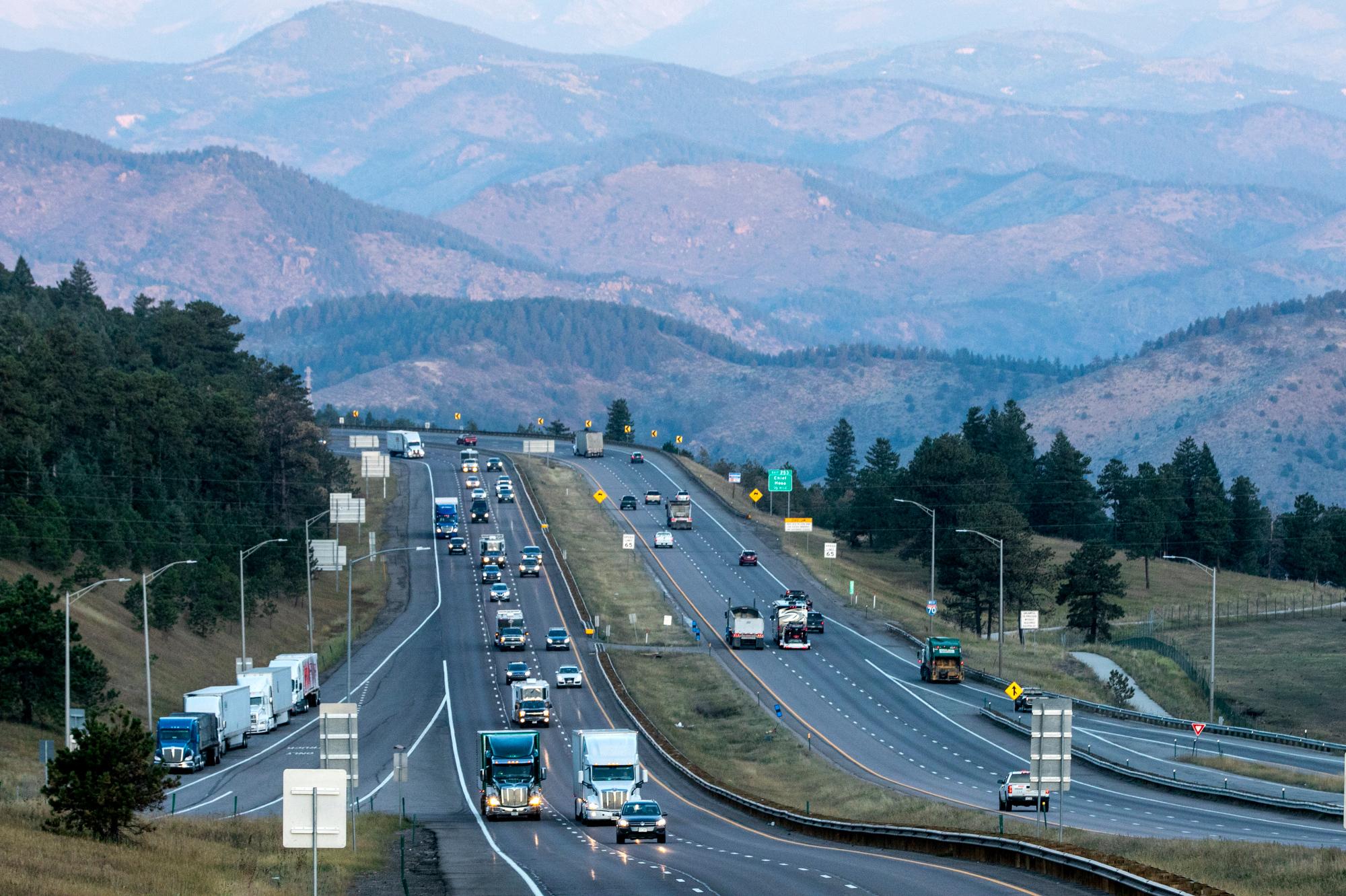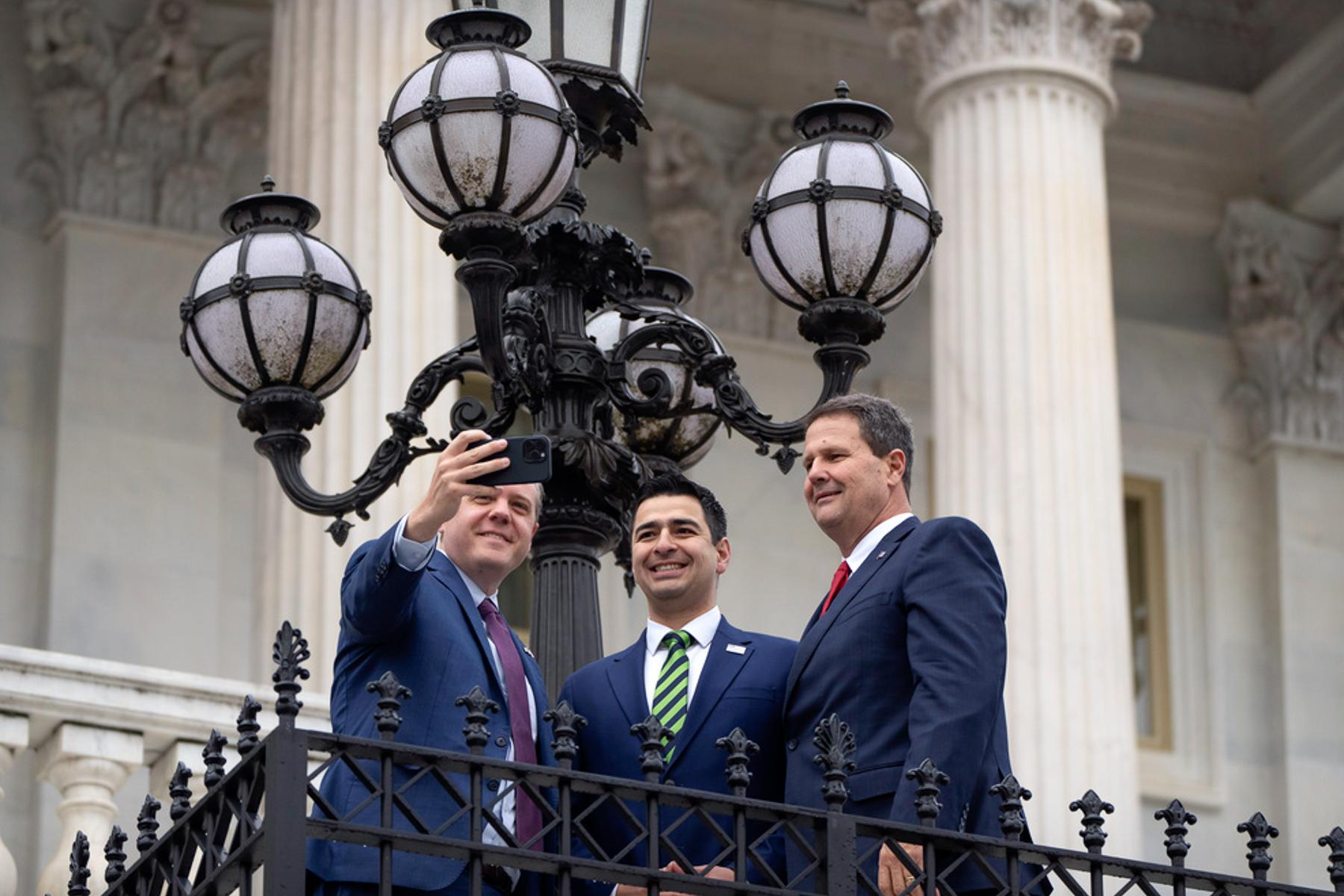
In the wake of the assassination of right-wing activist Charlie Kirk, one thing many in Colorado’s congressional delegation agree on is that social media isn’t helping the current political discourse.
Democratic Rep. Joe Neguse called social media "deeply corrosive." "Vile" is the word Republican Rep, Lauren Boebert used. "Toxic," "a destructive force in our political debate" and "a damn cesspool" are how others in the delegation view the online free-for-all.
“A lot of folks forget that there's actual human beings behind these conversations in these comments,” said GOP Rep. Gabe Evans.
“If I could go about doing this job without ever engaging on social media, I would love that,” said Democratic Rep. Brittany Pettersen.
But, like most things, even for the policymakers fed up with it, social media is not all bad or all good. With the steady erosion of local media outlets, it’s a way for lawmakers to connect directly with their constituents about their work.
Pettersen said part of the job is meeting people where they are – and that includes social media.
“It's a really important tool to be able to update people through different aspects in the community about what you're doing (and) answer questions,” she said, but also pointed out the negatives. “There are also bots. There are trolls. There are plenty of people who engage and say disgusting things that are not from the district.”
Boebert, who has the largest social media following of the delegation, and whose own posts have drawn both attention and criticism, said, “social media is largely a joke, but it's also very necessary.”
It’s a platform where she can not only communicate with constituents, but also elevate a message.
Boebert knows this power all too well. In 2019, when she was a relatively unknown gun-themed restaurant owner from Rifle, her “hell no” exchange with then presidential candidate Texas Rep. Beto O’Rourke about gun ownership went viral. It helped her get elected to Congress a year later.
Still, she said some people spend too much time on social media, to the point where, “that is their life. That is their reality. And it is one thing to post and go, but when you are just consumed by little clips and snippets every single day, it truly is programming. And it can alter your mindset and your way of thinking. And so it can be a toxin as the Speaker called it.”
After the assassination of Charlie Kirk, House Speaker Mike Johnson told CNN, “I think social media has been a toxin in politics. I think it has added to this vitriol.”
Even with the vileness she encounters online, Boebert said, “Am I going to stop using platforms? No, I will be more bold and more loud.”
Clicks and likes over laws and policy
If social media was supposed to be like a global public square, oftentimes it can feel more like a cage match for those who have to participate in it.
Since arriving in Congress in 2019, Democratic Representative Joe Neguse said he’s seen first hand how social media has “coarsened” the nature of public debate. “The vitriolic nature, the characterization of those with whom you might disagree as enemies rather than fellow citizens who have a different point of view.”
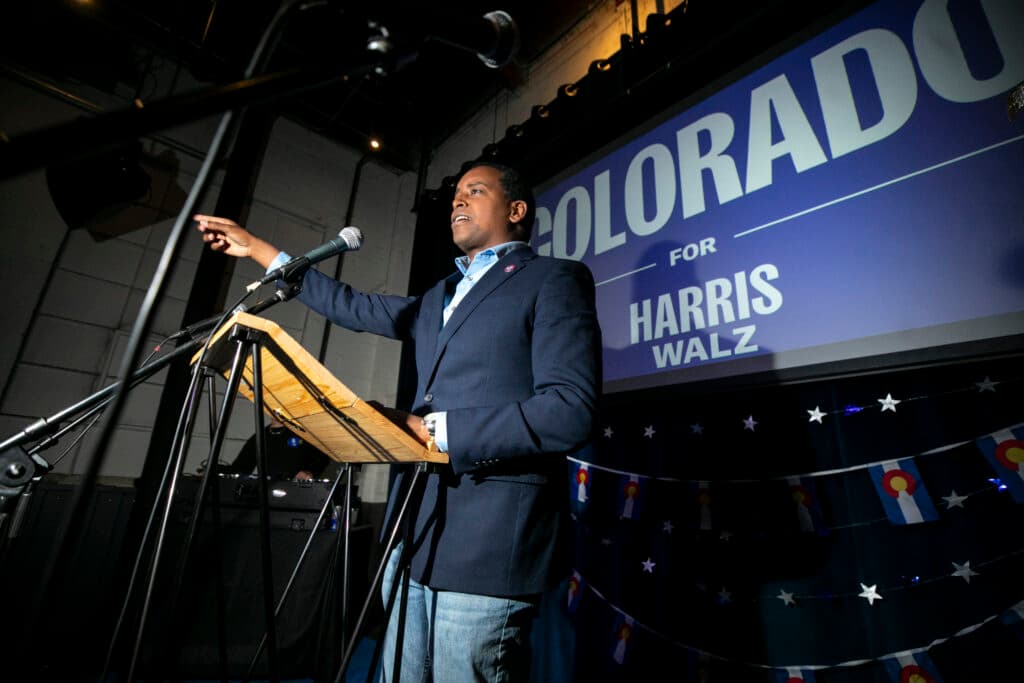
Neguse said sometimes in the D.C. bubble it seems like social media influence – the number of likes, the retweets, going viral – has become the barometer of whether a legislator is effective or not. He pointed out that his posts on work he’s doing to address invasive mussels in the Colorado River will probably never get much attention, even though the issue is critical for Western water users.
“However, if one engages in histrionic and vitriolic comments about their colleagues, that, in this political environment, surely will go viral,” he said. “Efficacy of our Congress and of lawmakers should not be premised on their ubiquity on social media.”
Sen. Michael Bennet went viral in January 2019 when he railed against Texas Sen. Ted Cruz for shedding "crocodile tears” for Coast Guard members not getting paid during a government shutdown. In 2022, Boebert also had an online moment go viral when she heckled then President Joe Biden during the State of the Union address as he talked about health issues for veterans exposed to burn pits.
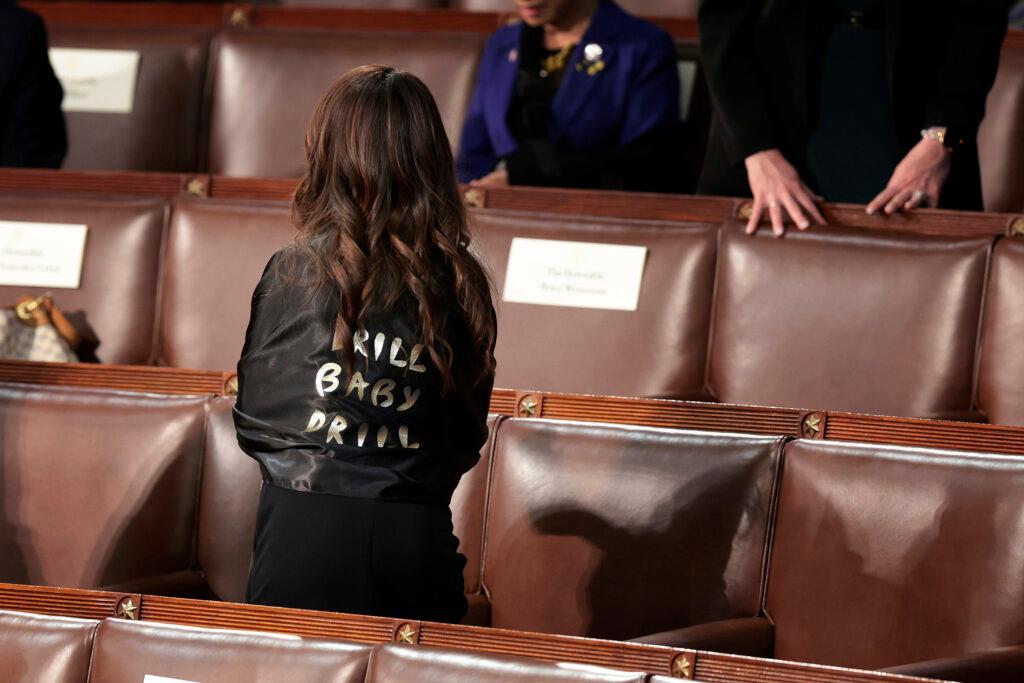
Freshman Republican Rep. Jeff Hurd said he’s not trying to be a social media influencer, joking that he’s a “micro-influencer.”
“If folks look at my social media, they'll see a reflection of who I am, my priorities, and the style that I bring to this office. It's not flashy, it's heartfelt, sincere, and policy driven,” Hurd explained. On his Facebook and X account, he’s got photos of a recent meeting with the National Ski Areas Association and a birthday message for the U.S. Air Force.
But Hurd’s approach seems to be the exception to the rule. Politicians get rewarded for viral moments not only with more followers or media attention, but potentially with campaign dollars. Online attention is something many fundraise off of.
For the most part, members of Colorado’s delegation told CPR News they try to be even-keeled on social media. And they want people on the other end to remember they and their staff are people too.
“It seems like a lot of folks forget that there's actual human beings behind these conversations in these comments,” said Evans, adding it’s okay to disagree, but people need to keep it civil.

“I think it's just easier to say something rude or obnoxious or dangerous when you're not staring somebody face to face. And it has broken away the bonds between personal relationships,” said GOP Rep. Jeff Crank, who represents El Paso County. He said he asks himself, ‘what would my parents think if I said what I post?’ It’s a question he wishes more people would ask themselves, but it’s a line more and more people cross.
And he said it’s something all sides do.
“If you call someone a fascist long enough, pretty soon people go, you know what? I don't like fascists. I'm going to go react to that,” Crank said. “And I use that as an example. There's people on my side of the aisle who have done the same thing in the past.”
These concerns come at a time when the man holding the nation’s highest office is also the founder of a social media platform, and a prodigious user of the medium, elevating it from an after-thought to a place where he announces policy and sets his administration’s agenda.
Trump has taken to social media to attack journalists, his political opponents and the “radical left.” In one post this summer he said, “Chicago about to find out why it’s called the Department of War,” under an image of him as an officer from the 1979 film "Apocalypse Now” with helicopters and a burning Chicago skyline in the background.
“He is famous for attacking anybody who disrespects him,” said Democratic Sen. John Hickenlooper. “ And people shouldn't be surprised by that. That's just what he does.”
What surprised many was when the press office account for California Gov. Gavin Newsom, a Democrat, started parodying Trump online with ALL CAP tweets and disparaging nicknames for political opponents. Forget about that one-time Democratic rallying cry of, when they go low, we go high.
Democratic Rep. Diana DeGette loves what Newsom has been doing, but “that is basically needling Trump;” it’s not proposing or having substantive policy discussion. She said that is not something that can be done via meme.

“We need to be able to have heated debate in America,” said Democratic Rep. Jason Crow of Aurora. “Sometimes it's tough, contentious debate, but we stop way short of that becoming violence.”
He said he’s trying to find common ground and carve out a space of unity for Americans. But at the same time, “calling out with boldness, abuses and attacks on our democracy and attacks on the guardrails of our democracy that I see, right?”
He’s taken this attitude with his social media account, calling out other politicians over tweets and engaging in public back and forths, sometimes with members of the Colorado delegation, like Boebert.
Most recently Crow declared Vice President JD Vance was “lying” when Vance, while hosting the Charlie Kirk podcast, said that, “it is a statistical fact that most of the lunatics in American politics today are proud members of the far-Left.”
Crow pushed back, writing, “stop using tragedy to stoke divisions between Americans so you can grab more power.”
Social Media won’t police itself
In 2018, around the winter Olympics, Democratic Sen. Bennet and then GOP Sen. Cory Gardner scored a social media bullseye with a viral video of them playing a makeshift curling match in the halls of Russell Senate building.
It’s the type of bipartisan fun you don’t see online as much these days.
Bennet said social media can do good. It can be a place of community, a place to learn things, and to foster curiosity about our world.
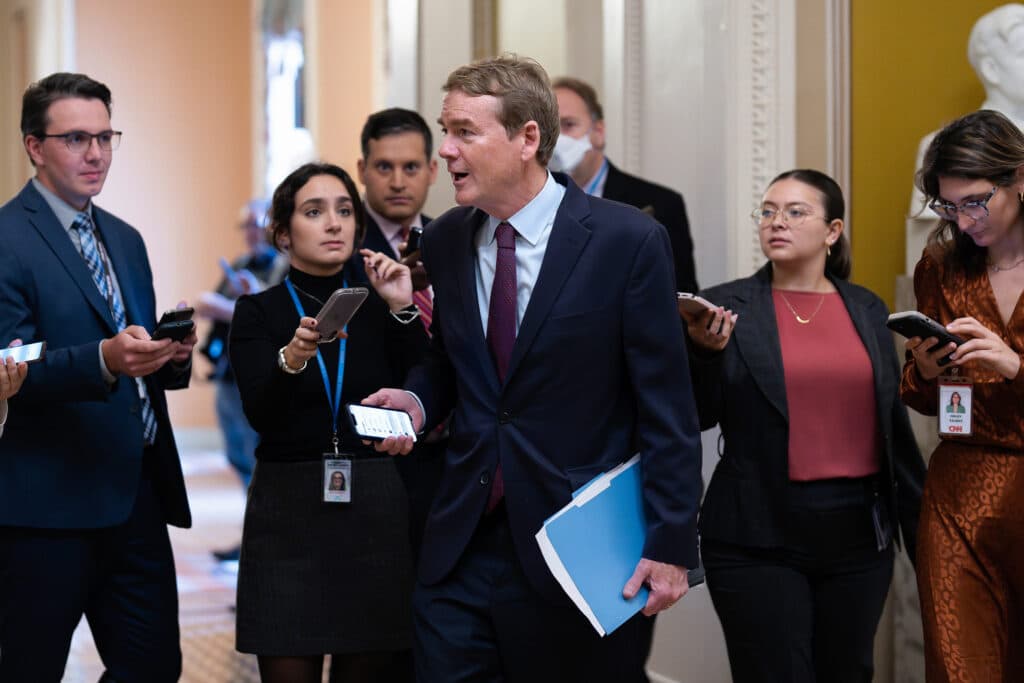
But politically, “in many ways I think it has been a real poison, an accelerant of divisions that we might or might not have actually had without social media,” he said.
“I think that the fight and the conflict and the algorithms of social media are constantly crowding out the discussions that I think we really need to have,” he said, whether that be education policy and why reading scores dropped to a 30 year low or economic policy. “I don't think the American people are nearly as divided as the people who are mainlining social media essentially all day long.”
He thinks Congress needs to step in because it’s “unreasonable” to think social media companies will ever regulate themselves. He’s advocated for the creation of a new agency, like the FCC or the FDA, to protect people from the harms of social media companies.
But getting Congress to regulate social media companies has been challenging. Last Congress, the Kids Online Safety Act, which would have required companies to do more to protect young people on their platforms, passed the Senate only to stall in the House. It hasn’t moved forward this Congress.
Still, Crow said there is growing agreement that something needs to be done.
“We're never going to have a consensus about how to fix it, but people have come around to understanding that this is a problem and that it needs some intervention because the social media companies are not going to police themselves,” he said. “They continue to create algorithms that are designed to get our children hooked on social media that drives the most divisive extreme rhetoric that is designed just to keep your attention and to get more clicks, and it's unhealthy.”
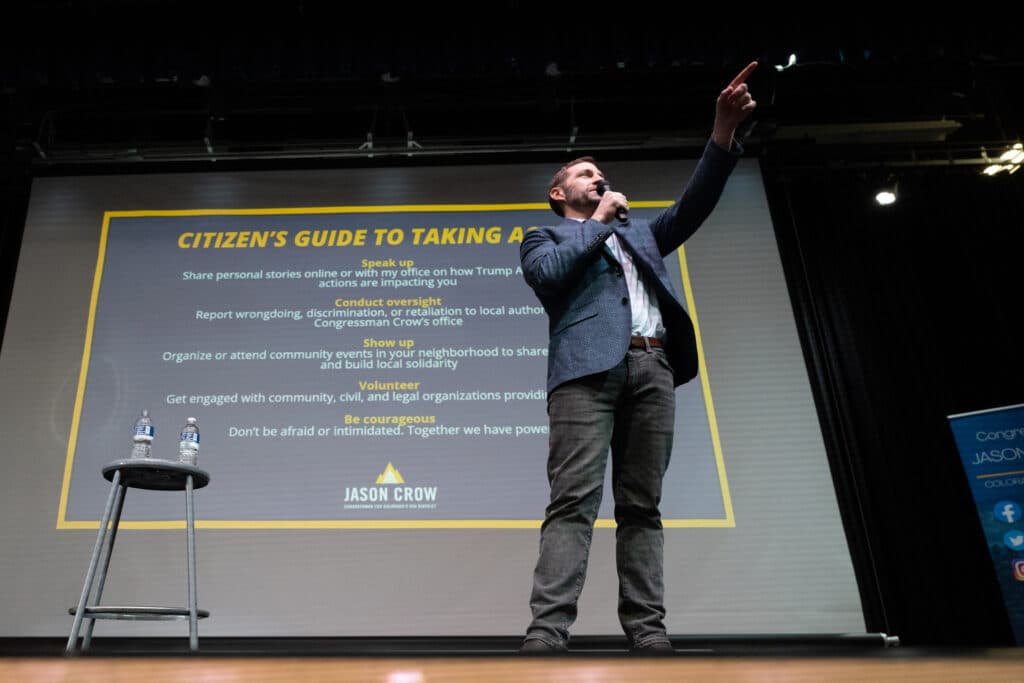
Even Hickenlooper, who still sees a lot of good in social media, questions the algorithms. “So much of social media now is the algorithms just feed back the negative things. They're trying to be divisive and that's not useful in terms of really trying to make better solutions and make those good solutions.”
He said he tries to keep his social posts short and to the point, uses humor as a way to bring people together and limits the attack-dog types of messages. But even with that, he said he too doesn't look at comments, “because all the negative ones are what get reinforced.”
In another life, he’d create a platform whose algorithms would reinforce positive messages.
For all the focus on social media these days and how it has accelerated the downward spiral of political discourse, Bennet said the solution to stop this trend won’t be found online.
“I think that the issues that we're facing as a country are not going to be solved by people having better TikTok videos,” he said. “We actually have to figure out how to have a better debate and a better discussion in America.”
In person and online.





